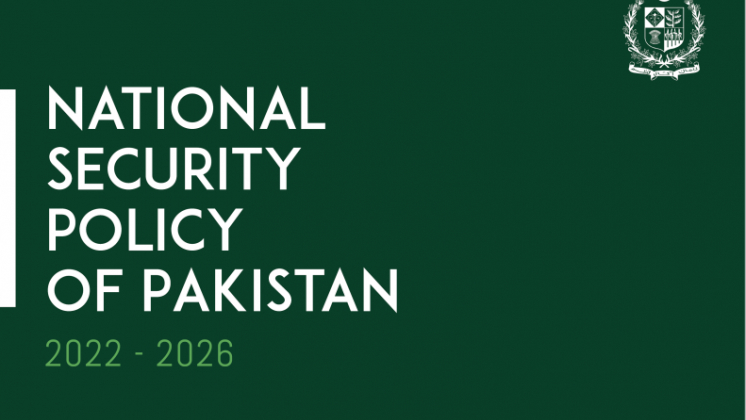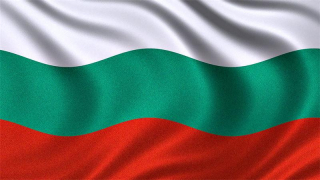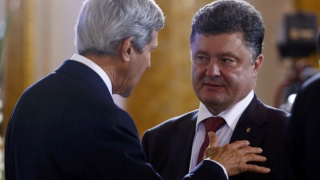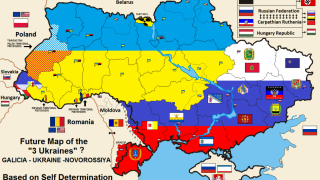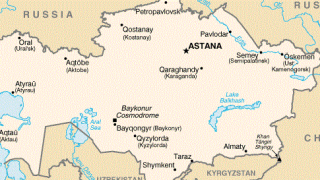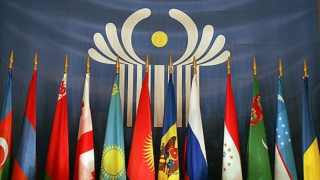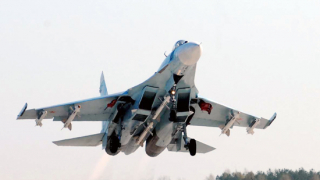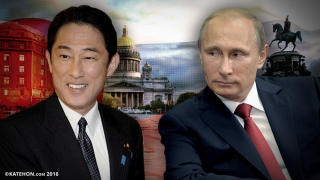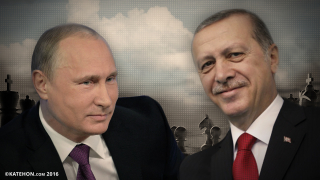Pakistan’s National Security Policy and the Russia Factor
On January 14, 2022, Pakistan officially launched its first-ever National Security Policy (NSP) document in an august ceremony in Islamabad, chaired by the Prime Minister of Pakistan Mr. Imran Khan.
The 48-page NSP document came to fruition after 7 years of devoted efforts by Pakistan’s National Security Division (NSD) to provide the country with a “Comprehensive National Security” framework which is citizen centric and it places ‘economic security’ at its core.
The NSP is divided into eight sections which address different facets of Pakistan’s national security besides explaining the formulation process and conceptual elements in the initial two sections.
As per Pakistan’s National Security Advisor (NSA) Dr. Moeed Yusuf’s statements, the NSP is an umbrella, a directional policy document which brings together views of all stakeholders in a uniform manner.
Moreover, the different sectoral policies will be linked to this umbrella policy document (the NSP). Meaning, specific sectoral policies will be formulated or created in light of the guiding principles provided by the NSP. Such a composition will resultantly manifest structured policy formulation and eliminate the existing disharmony in sectoral policies.
Although the NSP might seem like a cliche, highlighting the same vision, principles, and goals that any country in the world would mention in a policy document of this nature, however, what stands out in this particular document is Pakistan’s resolve to primarily focus on elements of non-traditional security, specifically economic and human security.
Now this does not mean that elements of traditional security will be neglected or not concentrated upon, but it means that non-traditional security will be focused simultaneously along with traditional security for the articulation of holistic policy actions.
The NSP clearly states that economic security of Pakistan will be ensured through a geo-economic vision for the purpose of supplementing its geo-strategic focus which will aid in expanding the country’s resource pie that will ultimately ensure the availability of greater resources to bolster traditional and human security.
Such a shift in policy focus and acknowledgement coming from a security state like Pakistan is a great feat, especially during a time when the global and regional environment has become increasingly fluid and volatile.
As a student of international relations and someone who regularly follows Pakistan-Russia relations, it was rather a pleasant sight to see relations with Russia being factored into the NSP.
Besides addressing relations with Russia in a separate segment in section seven (Foreign Policy in a Changing World), it is also important to highlight other elements mentioned within the NSP where complementarities exist between Pakistan and Russia. The opportunities that these complementarities create can be utilised by both the countries in order to further build on the momentum that has been created in their bilateral relations for the past few years.
First of all, convergence of interests exist in combating narco-trafficking and organised crime (as mentioned in section six - Internal Security), menaces that have plagued both countries for several decades and impacted the youth of both states adversely.
Second of all, as implied in section seven of the NSP, Pakistan is an advocate of peace, enhanced cooperation and cohesion in the region. Pakistan shares this spirit of regionalism with Russia which is also looking for enhanced regional connectivity and cooperation through various agreements and organisations. Since both countries are located in strategically significant geographic locations, there are numerous opportunities in diverse fields where cooperation can exist between the two countries, especially in transit trade.
Furthermore, multilateralism enjoys special attention in the NSP because multilateral institutions like the UN, IMF, WB etc. carry huge significance for Pakistan’s security, economic and diplomatic interests. Alternately, Russia also attaches great importance to multilateralism as it is imperative for it due to multiple factors.
Pakistan and Russia are co-members of several regional and global multilateral institutions such as the UN and SCO where they share the same values, principles and stances. This overlapping can be used to the advantage of both countries to develop a symbiotic relationship where they can support and complement each others’ stands on multiple topics and issues.
Non-proliferation and preservation of a rule-based international order are points where convergence of views exist between Pakistan and Russia. Combating the increasing hazard of Islamophobia (as mentioned in the NSP) is another value that Pakistan shares with Russia. President Putin’s recent remarks on Islamophobia are of note in this regard.
In the domain of economy, as highlighted in the NSP, Pakistan strives to become an energy resilient country and since Russia has abundant natural energy sources, both countries can develop a great working relationship in this regard, where Russia can help Pakistan achieve its goal of energy resilience by providing it with dependable and affordable energy supplies. The PSGP project which is currently being executed is a great first step.
Shared interests with respect to Afghanistan and countering militancy and extremism are also there. It's best not to go into the details of it here since a lot of literature has been produced about this already.
All things considered, it is important to state in conclusion that Russia, as important a country it is in international affairs, especially with its growing significance for and relations with Pakistan, it should have been given more attention and detail in the NSP.
At least a separate section should have been devoted to Russia in the NSP. Although the fact that in the public version of the NSP providing details has been deliberately avoided as it is only a ‘directional’ document, a major global power like Russia deserved more space and attention in the policy document.
More detail and proper addressal of different vistas of cooperation (that Pakistan wants to engage Russia in) should have been stated. Significant projects or initiatives that both countries have undertaken should have been highlighted in the NSP, not just for increasing the document’s word count but to give the Russian side an idea of what Pakistan expects/desires out of this bilateral relationship in the coming future. Besides, it would have also implied the seriousness that Pakistan attaches to its relations with Russia.
However, as Dr. Moeed said that the National Security Policy is an evolving document and is subject to review every year and the points highlighted above will be addressed adequately. I am sure that in practice, Pakistan attaches utmost importance to its relationship with Russia which is growing and improving significantly each year.

